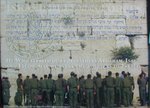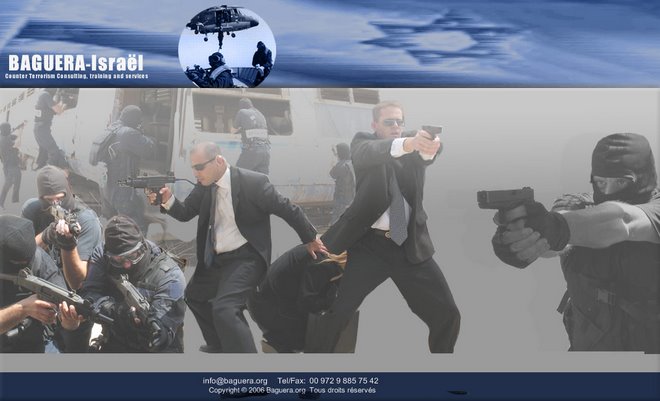Institute for Contemporary Affairs
founded jointly with the Wechsler Family Foundation
Vol. 8, No. 15 3 December 2008
Decoupling Syria from Iran:
Constraints on U.S.-Syrian Rapprochement
David Schenker
Damascus' foray into diplomacy with Israel has had little discernable effect on Syria's longstanding, unhelpful policies vis-à-vis Iraq, Lebanon, and Palestinian politics.
While moving Syria into the Western camp would be a great accomplishment, it's not clear that this development would necessarily constitute a long-term strategic setback for Iranian efforts to undermine U.S. policy in Lebanon, the Palestinian Authority, and Iraq. In the absence of Syria, Iran would still be capable of supporting Hizbullah, Hamas, and its Shiite allies in Iraq.
Developments in Damascus point to an erosion of state security and a domestically-weakened regime. Internationally, however, Syrian diplomatic gains are irrefutable and have buoyed the regime.
In this fluid environment, the Assad regime is betting that an Obama administration will provide relief, and the opportunity to reassert itself in Lebanon and reintegrate into the international community.
Yet the ultimate disposition of the new administration's policy toward Syria is far from certain, particularly if the Assad regime continues to pursue its unhelpful regional policies. In this regard, Assad's hopes for a dramatic change in U.S. Syria policy may be short-lived.
Like many authoritarian states, developments in Syria are notoriously difficult to interpret. The closed and conspiratorial nature of Syria's Assad regime has always made it a challenge to divine exactly what is going on in Damascus. Lately, however, this task has been further complicated by two seemingly contradictory trends in Syrian politics.
Since November 2008, a spate of killings and a suicide bombing in Damascus have fueled speculation that the Assad regime is facing unprecedented infighting or succumbing to terrorism and/or destabilizing external meddling. At the same time, however, the regime has derived enormous political and diplomatic benefit from its indirect negotiations with Israel, sponsored by Turkey. These talks have effectively undermined the international isolation of Syria in place since the 2005 murder of former Lebanese premier Rafiq Hariri.
Is the Assad regime under threat, or increasingly confident, buoyed by the election of Barak Obama and the apparent shift in international attitudes regarding its status as a rogue state? Dynamics on the ground suggest that the answer lies somewhere in between. Despite significant challenges facing Syria, the Assad regime today appears cautiously optimistic that trends are once again working in its favor.
Pressures Spike...
Since 2003, Damascus has found itself under unprecedented pressure. Syria's policy of sending military materiel to Saddam Hussein on the eve of the Iraq war and facilitating the movement of al-Qaeda and other insurgents to Iraq not surprisingly proved a real irritant to the bilateral relationship with Washington. As a result of these Syrian policies, in 2004, the Bush administration levied sanctions against Damascus and subsequently pushed for the passage of several UN Security Council resolutions (UNSCRs) targeting unhelpful Syrian behavior in Iraq and Lebanon, including, most prominently, UNSCR 1559, which demanded an end to the decades-long Syrian occupation of Lebanon.
The watershed in the deterioration of Syria's bilateral relationship with Washington and Syria's heretofore cordial relations with the international community was the assassination of former Lebanese premier Rafiq Hariri in February 2005, a crime for which Damascus is the leading suspect. Two months after the murder, pressures drove Syrian forces out of Lebanon. And in the aftermath of the killing, the Security Council initiated an independent investigation (UNSCR 1644) and later voted to establish an international tribunal (UNSCR 1701) to prosecute the culprits.
Subsequently, not only was Damascus treated as a pariah, the Assad regime faced the very real prospect that senior regime officials - including members of Assad's family and inner circle - would be implicated in the killing, a development that could shake the very foundations of the regime. These pressures were compounded in September 2007, when Israeli jets bombed a presumed Syrian nuclear facility near the village of al-Kibar.
...And Diminish
Severe pressures lasted about a year, but then chinks in the armor of the isolation policy started to appear. First, the Iraqi prime minister visited Damascus in August 2007; then trips by delegations of U.S. congressmen headlined by House Speaker Nancy Pelosi. At the same time, Syria saw dramatic increases in foreign direct investment, particularly from the Gulf, most significantly Qatar. Despite these challenges, however, the policy of diplomatic isolation largely remained in place until the announcement on May 21, 2008, of indirect negotiations in Turkey between Syria and Israel.
The impact of this announcement was compounded by Damascus' decision, the very same day in Doha, to consent to the election of a new, ostensibly pro-Syrian president in Lebanon1 - a move that temporarily ended a seven-month standoff between the pro-West government and its Syrian and Iranian allies led by Hizbullah.2
For Damascus, the publication of the talks with Israel - and the appearance of being helpful on Lebanon - opened the floodgates of European engagement. President Assad traveled to Paris for Bastille Day celebrations and talks with President Sarkozy. Shortly thereafter, Sarkozy appealed to the European Union to end its opposition to Syrian membership in the EU Economic Association. He also raised the possibility of Airbus sales to Damascus, and gave the green light to Total and Lafarge to sign major business deals.3 Sarkozy himself visited Syria in September 2008, setting the stage for a visit by Syrian Foreign Minister Walid Mouallem to London in October.
Echoing the European position and that of the newly-appointed Lebanese president - who called in August for the world to "open up to Syria" - Washington followed suit.4 On September 26, Secretary of State Condoleezza Rice met with Mouallem on the sidelines of the UN General Assembly. The meeting was followed by an additional round of talks between Mouallem and Assistant Secretary of State for Near East Affairs David Welch on September 29.
This seeming reversal in the longstanding Bush administration policy of isolating Damascus was only interrupted on October 26, when U.S. helicopters targeted a senior al-Qaeda operative on Syrian territory responsible for shuttling terrorists into Iraq. Responding to the strike, the Assad regime organized mass protests,5 shuttered the American school and cultural center in Damascus, and expelled U.S. personnel working for these institutions.6 Syrian officials likewise indicated that their government would aver future negotiations with Washington and instead wait for the next administration to further pursue dialogue.
Even after the U.S. cross-border strike, Damascus continued its progress in securing European diplomatic gains. Mouallem traveled to London to meet with British Foreign Minister David Miliband to discuss a renewal of bilateral ties and London's support for Israeli-Syrian negotiations. In November, in the first senior-level visit since 2005, Miliband went to Damascus to meet President Assad. On November 19, it was announced that Britain had reestablished high-level intelligence ties with the Assad regime.7
Damascus Murder Mysteries and Other Security Breaches
While developments with Europe appeared to be in Syria's favor, events at home generated concern. The Assad regime long prided itself on the capabilities of its state security, but several security breaches in 2007-2008 undercut this carefully cultivated image. The first blow came on September 6, 2007, when Israeli planes penetrated Syrian airspace and destroyed what Western intelligence agencies almost universally agree was a Syrian nuclear facility at al-Kibar.8
On February 12, 2008, longtime Hizbullah military commander Imad Mughniyeh was killed by a car bomb in a tightly controlled area of Damascus. In the aftermath of the assassination, recriminations flew. While most people attributed the operation to Israel, Mughniyeh's widow blamed "Syrian traitors" for her husband's murder,9 and there are some signs that the killing may be contributing to tensions in the Syrian-Iranian alliance.10
A second high-profile assassination involved Mohammed Suleiman, a top military aide to President Assad who reportedly managed both weapons transfers to Hizbullah and the Syrian nuclear program. Initial reports of the August 1 killing focused on the possibility of an Israeli sniper hit, but subsequent speculation has focused on the possibility that the killing was related to Syrian infighting,11 Iranian revenge for an alleged Syrian role in the Mughniyeh killing, and/or an operation to cover up evidence regarding al-Kibar. According to International Atomic Energy Agency Director Mohamed ElBaradei, Suleiman was the IAEA's "main interlocutor" in the investigation into the facility.12
On September 27, a suicide car bomb went off in the heart of Damascus, killing 17. Official spokesmen immediately blamed "Islamic extremists" (i.e., al-Qaeda) for the strike, although it remains unclear whether the incident is being seriously investigated. No claims of responsibility have been forthcoming. Still, if al-Qaeda did perpetrate the attack, it would come as little surprise: Damascus facilitated the organization's movement across, and allowed it to train on, Syrian territory since 2003. Over the years, some of these jihadis may have taken up residence in Syria, adding to the regime's security concerns.
Responding to the attack, Syria intimated a connection to Fatah al-Islam, the Lebanon-based al-Qaeda affiliate.13 The linkage was odd, given Syria's close relationship to the group.14 Nevertheless, the regime started to mass troops on the Lebanese border, ostensibly to protect Syria from further attack.15
In October 2008, U.S. forces crossed the Syrian border to target a high-value al-Qaeda operative in Syria. The brazen raid, which occurred during daylight hours and was captured by a local on video, infuriated Syrian authorities.16 Foreign Minister Walid Moualem denied the al-Qaeda connection, described the U.S. strike as a violation of sovereignty, and pledged to "defend [Syrian] territories" in the future. He also claimed the U.S. strike was intended to undermine recent Syrian diplomatic inroads in Europe.17 At the same time, Syrian Ambassador to Washington Imad Mustafa indicated that his government would no longer engage with the Bush administration. Instead, he said, Syria would wait for a new [Obama] presidency.18
Shoring Up the Alliance with Tehran
The security setbacks for Damascus and the ongoing talks with Israel have likely been viewed by Iran with concern. Israeli officials articulate the view that talks with Syria constitute a tool to "help isolate Iran."19 Iranian officials have likewise issued public warnings to the Assad regime not to go too far in these discussions. In June 2008, a senior advisor to Supreme Leader Ayatollah Khameini cautioned Syria on the "consequences of 'peace' on its relations with Tehran."20
In response, Damascus has sought to reassure Tehran that it has no intention of undertaking the kind of strategic reorientation toward the West envisioned by Israel as underpinning a peace treaty. In May 2008, for example, a day after Israeli Foreign Minister Tzipi Livni mentioned the Israeli quid pro quo for a peace deal - i.e., a Syrian split from Tehran and an end to support for Hizbullah and Hamas as the price for the Golan Heights - Damascus dispatched Defense Minister Hassan Turkmani to Tehran for three days of talks, including a meeting with President Ahmadinejad.21 Turkmani returned to Syria with a signed memorandum of understanding for military and defense cooperation with Iran.22 In August, President Assad himself traveled to Tehran for meetings with Ahmadinejad.
During 2008, Syria and Iran signed several additional agreements dealing with cooperation in electricity, science, and communications, among other fields. In July 2008, just two months after the Israeli talks were announced, Iran and Syria signed a preferential trade agreement and agreed to establish a joint bank.23
At the same time, Syria has worked to reassure Hizbullah that it remains committed to their relationship. In a September 2008 interview with Hizbullah's Al-Manar television, President Assad explained Syrian policy: "We don't see an interest in abandoning the resistance [i.e., Hizbullah]..Our clear position remains in all our political discourse - our steadfast position for resistance" in Iraq, Lebanon and Palestine.24 One month later, Syrian Ambassador to Washington Imad Mustapha referred to Hizbullah as a "close ally" which Syria regarded with pride.25
A New Page?
Damascus' foray into diplomacy with Israel has had little discernable effect on Syria's longstanding, unhelpful policies vis-à-vis Iraq, Lebanon, and Palestinian politics. Indeed, according to Iraqi military sources, prior to the October 2008 U.S. cross-border strike, Baghdad had informed Damascus of the senior al-Qaeda official's presence on Syrian territory and had requested that Syria take action.26
Even as Syria continued to pursue policies seemingly designed to undermine U.S. interests in the region, the Assad regime has made no secret of its preference for an Obama administration. During the summer, presidential confidant and Minister of Expatriates Bouthaina Shaaban opined that "America desperately needs a logo change."27 Obama, she said, would change both the content and tone of American foreign policy, presumably in a direction more amenable to Syrian interests. On the eve of the U.S. elections, with Obama far ahead in the polls, President Assad similarly announced that Syria was waiting for the next administration to mediate Israeli-Syrian negotiations.28
However, several senior advisors to the president-elect have suggested that Washington will continue to maintain high expectations of Syrian behavior as the sine qua non for bilateral progress.29 Moreover, there is no indication that an Obama administration would be willing to sacrifice Lebanon and its democratic pro-West allies in exchange for marginal and likely temporary improvements in Syrian policy.
Even if the Obama administration wished to "test" Damascus' intentions regarding the potential for a split with Tehran, Washington would be somewhat constrained in the kind of concessions it could make to cajole Syria. The international tribunal on the Hariri assassination, for example, is not under U.S. but rather UN auspices; the International Atomic Energy Agency (IAEA) investigation into illegal Syrian nuclear activities is likewise independent and not subject to U.S. political interference. In fact, given the IAEA's initial report about the Syrian nuclear facility at al-Kibar - and in light of Damascus' lack of cooperation in the investigation - the IAEA may be particularly tenacious in pursuing this matter.30
An Obama administration may also face constraints from its Arab allies, like Saudi Arabia, Egypt, and Jordan, which possess few illusions about Syria's capacity and willingness to change. This "moderate" Arab bloc would not welcome a policy that freely gives away the few precious levers of pressure on Syria while strengthening Iran. These Arab states, and particularly Saudi Arabia, are concerned about recent Syrian diplomatic gains, and have tried to revitalize the Arab peace proposal - focused on Israeli-Palestinian negotiations - as a means to counter progress on the Syria-Israel track and the international rehabilitation of Damascus.
Of course, even if Washington's diplomatic efforts to foster a Syria-Israel deal ultimately fail, it's possible that the negotiations themselves could result in U.S.-Israel bilateral tensions. While it seems unlikely, Israel could face pressure from an Obama administration to ink a deal that does not explicitly demand a verifiable shift of Syria away from the Iranian orbit. In the absence of a Syrian strategic realignment, however, it would be difficult to imagine Israel consenting to such a deal.
Furthermore, while moving Syria into the Western camp would be a great accomplishment, it's not clear that this development would necessarily constitute a long-term strategic setback for Iranian efforts to undermine U.S. policy in Lebanon, the Palestinian Authority, and Iraq. In the absence of Syria, Iran would still be capable of supporting Hizbullah, Hamas, and its Shiite allies in Iraq.
Conclusion
Developments in Damascus point to an erosion of state security and a domestically-weakened regime. Internationally, however, Syrian diplomatic gains are irrefutable and have buoyed the regime. In this fluid environment, the Assad regime is betting that an Obama administration will provide relief, and the opportunity to reassert itself in Lebanon and reintegrate into the international community. Yet the ultimate disposition of the new administration's policy toward Syria is far from certain, particularly if the Assad regime continues to pursue its unhelpful regional policies. In this regard, Assad's hopes for a dramatic change in U.S. Syria policy may be short-lived.
* * *
Notes
1. See, for example, Hussein Abdallah, "Suleiman Urges World to Open Up to Syria," Daily Star (Beirut), August 28, 2008, http://www.dailystar.com.lb/article.asp?edition_id=1&categ_id=2&article_id=95494
2. See David Schenker, "Lebanese Crisis Ends: Hizballah Victory or Temporary Truce?" Policywatch #1375, Washington Institute for Near East Policy, May 21, 2008, http://www.washingtoninstitute.org/templateC05.php?CID=2883
3. "Lafarge, Total to Sign Syrian Deals," Reuters, September 4, 2008, http://www.reuters.com/article/companyNewsAndPR/idUSL44186420080904. See also Ibrahim Hamide, "Nahu 'Khatwa malmusa' li'ilaqat diplomasiya khilal ziyarat Sleiman." Al Hayat, August 8, 2008, http://www.daralhayat.com/arab_news/levant_news/08-2008/Article-20080808-a38664f0-c0a8-10ed-01bf-ee331773c621/story.html
4. Hussein Abdallah, "Suleiman Urges World to Open Up to Syria," Beirut Daily Star, August 28, 2008, http://www.dailystar.com.lb/article.asp?edition_id=1&categ_id=2&article_id=95494
5. Graham Bowley, "As If on Cue, Syrians Protest U.S. Incursion on Their Soil," New York Times, October 30, 2008, http://www.nytimes.com/2008/10/31/world/middleeast/31syria.html
6. "Syria Asks Foreign Staff of U.S. Institutions to Leave Country," Deutsche Press Agentur, November 4, 2008, http://www.haaretz.com/hasen/spages/1033940.html
7. "Britain Resumes High-Level Intelligence Links with Syria," AFP (Middle East Times), November 19, 2008, http://www.metimes.com/Politics/2008/11/19/britain_resumes_highlevel_intelligence_links_with_syria_report/afp/
8. See, for example, Paul Richter, "Syria-N. Korea Nuclear Link Seen, Diplomat Says," Los Angeles Times, January 8, 2008, http://articles.latimes.com/2008/jan/17/world/fg-syria17
9. "Iran: Slain Hezbollah Military Chief's Widow Points the Finger at Syria," AKI Adnkronos International, November 4, 2008, http://www.adnkronos.com/AKI/English/Security/?id=1.0.1912415171. Still others have suggested that the Mughniyeh killing represented elements of Hizbullah infighting.
10. For example, the day after the Mughniyeh assassination, Tehran announced a joint Syrian-Iranian investigation into the killing ("Iran, Syria Open Joint Investigation into Mughniyeh Assassination," AP, February 15, 2008, http://www.iht.com/articles/ap/2008/02/15/africa/ME-GEN-Syria-Iran.php). The next day, Damascus' official news agency SANA issued a terse statement indicating the investigation would be completed by Syria alone ("An Official Information Source Denies Reports on the Formation of a Joint Committee to Investigate Moghnia Assassination," SANA, February 16, 2008, http://www.sana.sy/eng/21/2008/02/16/161180.htm). Likewise, in the aftermath of the Mugniyeh affair, a large deal in which Syria was slated to purchase busses from Iran was cancelled without explanation.
11. For a discussion of the infighting theory, see Amir Kulik, "The Assassination of General Mohammed Suleiman," Canada Free Press, August 15, 2008, http://www.canadafreepress.com/index.php/article/4481
12. "Shooting Delays UN Syria Inquiry," BBC News, September 26, 2008, http://news.bbc.co.uk/2/hi/middle_east/7638499.stm. If Suleiman was indeed killed by Syrian intelligence, it would be consistent with the apparent Syrian practice of executing officials possessing detailed knowledge of sensitive issues acting as key interlocutors in UN investigations. Former Syrian viceroy in Lebanon Ghazi Kena'an - believed to be a key witness for the UN investigation of the Hariri murder - "committed suicide" in October 2005.
13. Weeks later, "confessions" from the alleged Fatah al-Islam perpetrators of the attack were aired on Syrian television. See Natalia Antelava, "Behind the Syria TV 'Confessions'," BBC, November 7, 2008, http://news.bbc.co.uk/2/hi/middle_east/7715850.stm. Few observers believed these "confessions" were credible.
14. See, for example, Gary Gambill, "The Rise of Fatah al-Islam," Global Politician, July 10, 2007, http://www.globalpolitician.com/23075-lebanon, and David Schenker, "Syria's Export of Terrorism to Lebanon: Threat and Response," Policywatch #1245, Washington Institute for Near East Policy, June 14, 2007, http://www.washingtoninstitute.org/templateC05.php?CID=2618
15. Not coincidentally, this move occurred just one day prior to newly-elected President Suleiman's first visit to Washington, serving as a not so subtle message to the president not to stray off the reservation.
16. Video may be viewed at "Syria Raid Killed 'Major Target'," BBC News, October 28, 2008, http://news.bbc.co.uk/2/hi/middle_east/7694528.stm
17. Patrick Goodenough, "Syria Says US Trying to Undermine Its European Diplomatic Successes," CNSNews.com, October 28, 2008, http://www.cnsnews.com/Public/Content/Article.aspx?rsrcid=38235
18. "Seven Questions for Syrian Ambassador Imad Moustapha," Foreign Policy, October 2008, http://www.foreignpolicy.com/story/cms.php?story_id=4544
19. Herb Keinon, "Syria Talks Meant to Pressure Iran," Jerusalem Post, November 2, 2008.
20. "Itabar tafawad Hizballah wa Hamas maa Israel 'Shiun mukhtalifun'," Al Arabiyyah (TV), June 14, 2008, http://www.alarabiya.net/articles/2008/07/14/53053.html
21. "Iranian Defense Minister Hails 'Strategic Ties' with Syria," Reuters, May 25, 2008, http://haaretz.com/hasen/spages/986876.html
22. "Waqaan muthakara tafahum lil taawun al askari wal difai'," Tishreen, May 28, 2008, http://www.tishreen.info/__archives.asp?FileName=431053566200805280122153
23. "Itifaqiya al tijara al tifadaliya binya Syria and Iran," Syrian Time, July 12, 2008, www.syriantime.com/economic/2316.html
24. "Al Asad lil Manar: Mowqifna min al muqawama thabit was lam yataghayir," Al Manar, September 4, 2008, http://www.almanar.com.lb/newssite/newsdetails.aspx?id=55724&language=ar
25. "Syria Envoy: Future Generations Will Pay If Israel Scuttles Peace Talks," Ha'aretz, October 22, 2008, http://www.haaretz.com/hasen/spages/1030438.html
26. "Iraqi Official to NOW Lebanon: Syria Was Aware of Terrorist Base," NOW Lebanon, October 31, 2008, http://nowlebanon.com/NewsArticleDetails.aspx?ID=65154. The story quoted Iraqi Interior Ministry spokesman Abdulkarim Khalaf.
27. Judith Miller, "Obamamania in Damascus," City Journal, June 3, 2008, http://www.city-journal.org/2008/eon0603jm.html
28. Given Republican presidential candidate John McCain's stated opposition to "engagement" with Syria, it is a fair presumption that Assad was referring to an Obama administration.
29. See, for example, Dennis Ross, "A Ceasefire Reality: Engaging Syria," Washington Post, August 17, 2006, and Ross' quotes in Natanya Mozgovaya, "Dennis Ross on Why He's Working for Obama and How He'd Talk to Iran," Ha'aretz, November 7, 2008, http://www.haaretz.com/hasen/spages/1030931.html. On July 29, 2005, then Senator Obama and Senator Hillary Clinton - the Obama Administration Secretary of State designate - signed a letter urging the Bush administration to identify Hizbullah's Al-Manar television as a Specially Designated Global Terrorist organization, because "Hizbullah, a known terrorist organization, funds Al-Manar." http://frwebgate.access.gpo.gov/cgi-bin/getpage.cgi?position=all&page=S11652&dbname=2005_record
30. "Implementation of the NPT Safeguards Agreement in the Syrian Arab Republic," Report by the Secretary General of the IAEA, GOV/2008/60, November 19, 2008.
* * *
David Schenker is a senior fellow in Arab politics at the Washington Institute for Near East Policy. From 2002 to 2006, he served in the Office of the Secretary of Defense as country director for Syria, Lebanon, Jordan, and the Palestinian territories. He is a member of the Board of Advisers of the Institute for Contemporary Affairs at the Jerusalem Center for Public Affairs.
This Jerusalem Issue Brief is available online at:
http://www.jcpa.org/
Dore Gold, Publisher; Yaacov Amidror, ICA Chairman; Dan Diker, ICA Director; Mark Ami-El, Managing Editor. Jerusalem Center for Public Affairs (Registered Amuta), 13 Tel-Hai St., Jerusalem, Israel; Tel. 972-2-561-9281, Fax. 972-2-561-9112, Email: jcpa@netvision.net.il. In U.S.A.: Center for Jewish Community Studies, 5800 Park Heights Ave., Baltimore, MD 21215; Tel. 410-664-5222; Fax 410-664-1228. Website: www.jcpa.org. ©Copyright. The opinions expressed herein do not necessarily reflect those of the Board of Fellows of the Jerusalem Center for Public Affairs.
































 While doing IDF (Israel Defence Forces) reserve duty on a mountain overlooking the
While doing IDF (Israel Defence Forces) reserve duty on a mountain overlooking the 





No comments:
Post a Comment